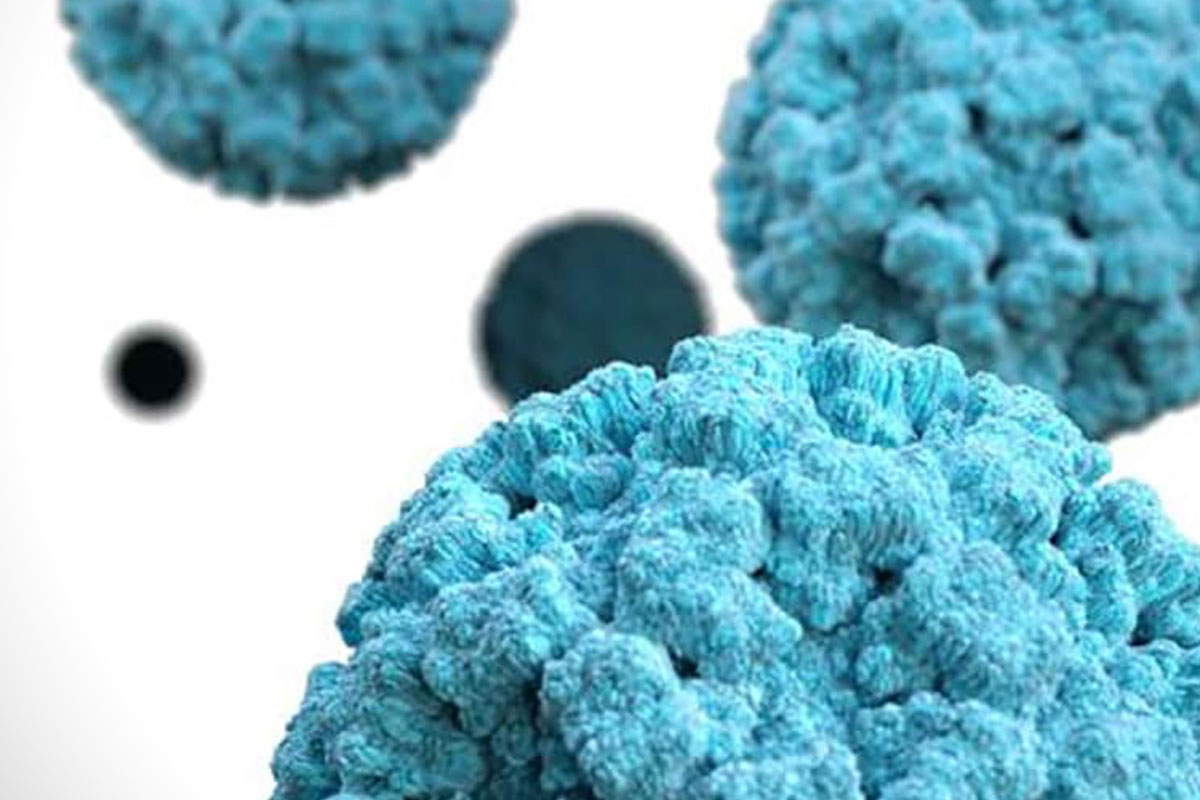Vomit-proof: how close are we to a norovirus vaccine?
An oral vaccine shows early promise in preventing infection and limiting norovirus transmission
- 2 June 2025
- 5 min read
- by Linda Geddes

In a new study, researchers have shown that an experimental oral vaccine triggers antibodies that can neutralise a wide range of norovirus strains.
It may also reduce the amount of virus that infected people shed, raising hopes that a broadly protective vaccine may be within reach.
Vomiting virus
Norovirus is a highly contagious virus that spreads through contaminated food, water, surfaces or contact with infected individuals, including aerosolised particles from their diarrhoea or vomit.
Also known as ‘winter vomiting virus’ because it tends to be more common during colder months in many parts of the world, it is one of the leading causes of acute gastroenteritis (inflammation of the stomach and intestines) worldwide.
Although most people recover, the virus poses a serious threat to young children, older adults and people with weakened immune systems, and is responsible for some 200,000 deaths each year – 70,000 of them among children in low- and middle-income countries.
“Norovirus cases this winter have surged to twice the two previous annual peaks, which really underscores the fact that norovirus is both prevalent and rapidly evolving, and we need a vaccine against it to reduce the global burden of diseases associated with norovirus,” said Dr Juyeon Park, the study’s lead author and a postdoctoral researcher at the University of Texas in Austin, US.
Norovirus vaccine
Developing a vaccine against norovirus has been challenging because the virus is a master of disguise, frequently mutating to slip past the immune system’s defences and presenting an ever-shifting array of genetic variants.
Even so, several vaccine candidates are in clinical development, including an mRNA vaccine, a few virus-like particle-based vaccines and an oral vaccine that uses a weakened and modified adenovirus to deliver a norovirus protein called VP1 to human cells.
This latter approach – known as a viral vector-based vaccine – was the focus of the current trial.
Park and colleagues tested whether an experimental oral norovirus vaccine developed by Vaxart, known as VXA-G1.1-NN, could trigger protective antibodies against norovirus, and/or protect individuals against infection, by giving 165 people the vaccine or a placebo, and then deliberately exposing some of them to norovirus.
They found that the vaccine not only primed the immune system to fight off infection by triggering antibodies against VP1 protein in both the blood and the lining of the gut, but it also reduced the amount of virus that infected people shed in both their stool and vomit – which is critical for stopping transmission.
Viral weak spot
Advanced molecular analysis also revealed that some people produced antibodies that cross-neutralised multiple norovirus strains, including those responsible for approximately 75% of global outbreaks.
“These findings provide critical insights into how the immune system responds to norovirus and pave the way for designing a vaccine that offers broad, long-lasting protection,” said study co-author Prof George Georgiou, also at UT Austin. “We found antibodies that are very broad in terms of being able to neutralise many different variants that have circulated or are circulating now.”
Have you read?
These antibodies could also be used to develop a post-infection therapy that could be used to treat immunocompromised people who cannot fight off the infection on their own, Georgiou added.
One of the most promising antibodies they identified, known as VX22, targets a previously unknown weak spot in the virus’s structure, which is shared by multiple strains – making it a strong candidate for vaccine development.
Reduced infections
The results, published in Science Translational Medicine, found that of the 71 participants who received the experimental vaccine and were then deliberately exposed to norovirus, 57.1% developed an infection, compared with 81.5% of people who received a placebo vaccine – a 30% reduction in their relative risk of infection.
However, because the amount of virus that people were exposed to was far higher than they’d usually encounter, and the virus strain used in this trial isn’t the one responsible for the bulk of global infections, it is unclear how this would translate into real-world protection.
The vaccine didn’t just protect against infection – it also reduced the amount of virus that people shed in their stool for up to a week after exposure, even if they didn’t fall ill. It also curbed how often they vomited and the amount of virus their vomit contained, potentially cutting off two major routes of transmission.
“Vomiting is a key route of transmission, as indicated by outbreak studies demonstrating that the risk of norovirus illness is correlated with both the number of and proximity to vomiting events,” the researchers wrote. “We hypothesise that vaccination likely affects transmission by reducing the amount of virus seeded into the environment through [contaminated objects] and airborne droplets.”
Georgiou added: “This discovery brings us closer to a vaccine that could provide lasting protection and prevent the devastating effects of norovirus outbreaks, as well as potential treatment for those already infected.”
The team is now working on refining the vaccine’s design and testing it in a broader range of individuals, such as elderly people and young children.
More from Linda Geddes
Recommended for you








